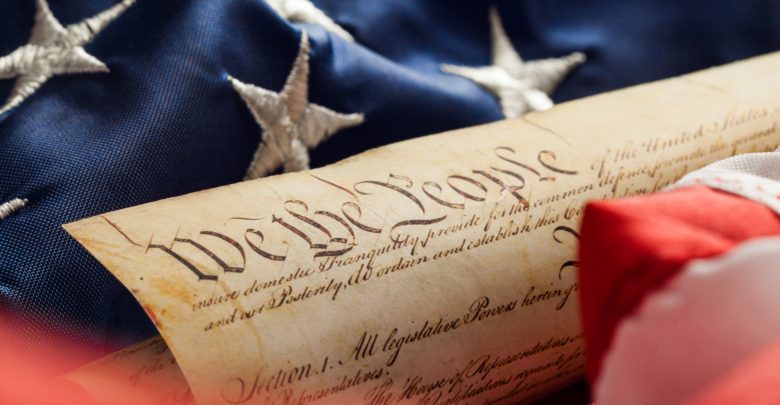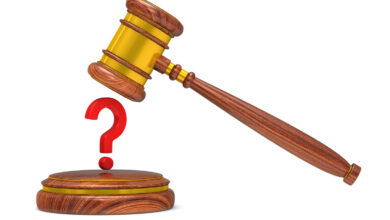Congress Can’t – Not Just Won’t, CAN’T – Overturn the Election

There is less than meet’s the eye in Trump’s anticipated last stand in Congress on January 6, 2021.
This final step in the election process is given apparent gravity by a provision of an ancient statute called the Electoral Count Act of 1887 (the “ECA”). The ECA authorizes members of congress to object to a state’s results and creates a process for resolving any such objections by votes in both the House and the Senate. If majorities of both houses affirm the objection, the ECA provides that the state’s electoral votes will be rejected. If enough electoral votes are rejected to prevent any candidate from getting 270 or more votes, the 12th Amendment of the U.S. Constitution throws the election to the House for a state-by-state vote. Since the GOP controls more state delegations than the Democrats, Trump presumably would be the winner.
For a whole host of reasons, chief of which are that the Democrats control a majority in the House and that the Senate Republicans have shown little inclination to play this game, it is virtually certain that Trump’s supporters won’t be able to get an objection through Congress on January 6.
But even if Trump’s supporters could muster enough votes to sustain an objection to the electoral count, that congressional vote would not withstand scrutiny under the Constitution. The electors, not Congress, have the last word, assuming only that 270 or more of them vote for one candidate. Since 306 of them have already cast certified votes for Joe Biden, it’s game over.
One might say that Congress has some say in determining the winner of the 2020 election, but only in the narrowest, most literal sense. It’s role is ministerial, not substantive. The 12th Amendment says:
“The president of the Senate shall, in the presence of the Senate and House of Representatives, open all the certificates [recording the votes of the electors of each state], and the votes shall then be counted. The person having the greatest number of votes shall be the President, if such number be a majority of the whole number of electors appointed . . .”
So, if the process of the electoral votes being “counted” is the final pre-inauguration act in selecting a president, then one might say that Congress has a role in that process because the Constitution makes Congress the final vote counter.
But being the “counter” isn’t much of a role.
Nobody would say that Price Waterhouse, not the voting members of the Academy of Motion Picture Arts and Science, decides who wins the Oscar for best film. They just count the votes. They don’t have any say at all in deciding which film is best. And the Oscar accountants have even more of a say than Congress because the accountants actually certify the ballots, as well as counting them. Congress only counts. The states and the electors have already certified.
Some may contend that the ECA gives Congress more than the ministerial authority to “count” the certified electoral votes. By granting members of Congress a right to object to the already-certified electoral votes, the argument goes, the ECA gives Congress a substantive role in the decision-making process.
But that interpretation runs afoul of the Constitution. Although the scope of the authority granted to Congress by the ECA has never been addressed by the courts, it seems clear that the ECA would be held to be unconstitutional as applied to the kind of objections the Trump’s dead-enders plan to make.
The Constitution says only that the President of the Senate (Vice President Pence in this case) shall “open all the certificates” and that “the votes shall then be counted.” There is no provision for objections, or for any congressional role in the process other than “opening” and “counting” the certified electoral votes.
As written, that constitutional provision would seem to leave little room for congressional tinkering. It is perhaps conceivable that there could be some irregularity in the mundane processes of opening or counting the votes of the electors. I suppose Pence could open the wrong envelope, triggering howls of objection from both houses of Congress.
But that’s not what’s going on here. Here, Trump’s argument appears to be that certain state election results should not have been certified, and that the electors should not have voted in accordance with the certified results in their respective states because of alleged irregularities in the voting process.
That’s not an error in counting the votes of the electors. That’s a sweeping, substantive objection to the electoral process.
And for that, unless “counting” means something far different from “counting,” any purported congressionally-made remedy would exceed the Constitution’s narrow grant of authority to Congress to “count” the votes.
Because I haven’t found any scholarly or judicial writing on the constitutionality of the ECA as it might be applied to the objections anticipated from Trump’s supporters, I checked in with Laurence Tribe, the Carl M. Loeb University Professor and Professor of Constitutional Law at Harvard. Professor Tribe was kind enough to offer this unqualified, definitive response:
“[T]he 1887 Electoral Count Act cannot be regarded as an even arguably constitutional path along which the special Joint Session of Congress called for in the Twelfth Amendment might opt to engage in substantive second-guessing of how any given State chose to conduct its Article II function of appointing Electors.”
That sounds like case closed.
Still, believe it or not, there is some academic debate over the meaning of the word “count” in the Twelfth Amendment. So, if you’re looking for proof that not a single word of the U.S. Constitution is immune from legal pettifogging, I offer the following as Exhibit A.
One commentator writing in the North Carolina Law Review frames the debate this way: Does the ECA’s requirement that the electoral votes be “counted” give Congress “substantive decision-making authority over which votes should be counted,” or only ministerial authority to count the votes as certified? If the former, then the ECA’s grant of the power to object would arguably be constitutional in this situation. If, however, “counted” simply means “counted,” then a statute allowing congress to object to anything other than the count itself would be unconstitutional.
The idea that the word “count” could imply some kind of verification or certification process beyond simply counting might pass the giggle test if the Constitution didn’t already place the certification process somewhere else.
But it did.
The Constitution placed the final certification process squarely on the electors, not on Congress.
The constitutional language is clear: the “electors” shall “sign and certify” the results to Congress. If the framers had intended to add yet another layer of certification, and to grant that authority to Congress, they were more than capable of doing so in plain English. After all, they were up to the task of stating explicitly that the “electors” shall “certify” the votes. If they had intended to grant Congress a similar right, they would have said so. But they didn’t.
So spare me the semantic hand-wringing over the meaning of the word “count.” This should be easy, especially for a jurist who self-identifies as a “textualist.” Count means count. The Constitution doesn’t say “verify” or “certify.” Those processes have already been done elsewhere, initially by the states and finally by the electors.
What all of this means is that even if there were sufficient support to approve an objection in Congress – and there isn’t – Congress still couldn’t hand the election to Trump because it doesn’t have the constitutional authority to do so.
All Congress has left to do at this point is “count.” The last word, in any meaningful sense, goes to the Constitution, not Congress.
The ECA may seem to give Trump’s supporters the right to object to alleged irregularities in the voting process on January 6, but the Constitution doesn’t.
Message to Congress: Shut up and count.




